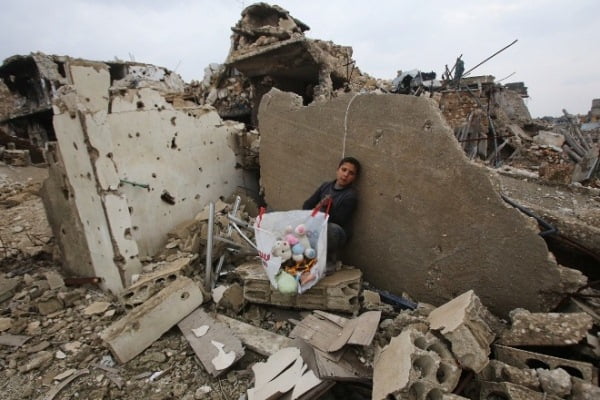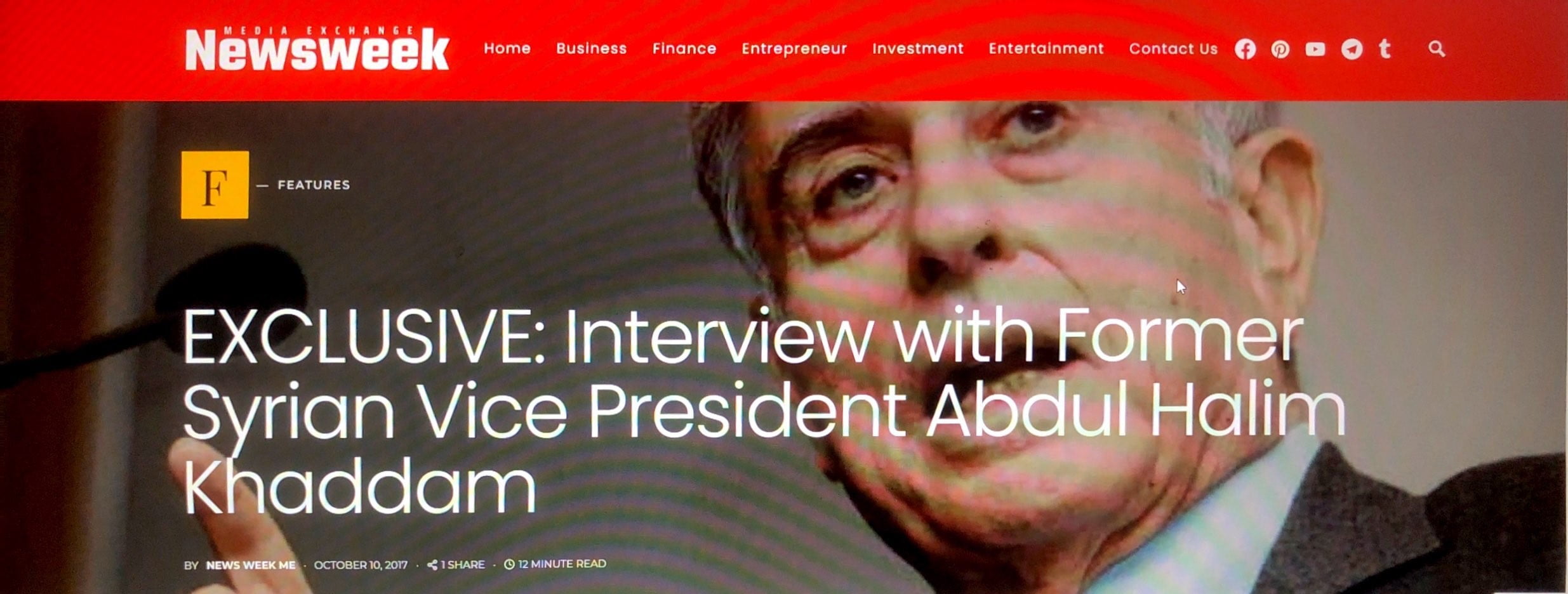“I cannot imagine how the war in Syria will end… I believe that the American administration is no longer capable, perhaps, of fixing the situation there,” with these words, former Syrian Vice President Abdul Halim Khaddam expressed his vision of the events unfolding in his homeland.
From his Parisian home, thousands of kilometers away from his native country, the 84-year-old Syrian politician discussed in a phone call the Iranian intervention in Syria, the failed coup attempt in Turkey, the US presidential elections, the “Syrian chemical arsenal,” and the recent “mysterious” targeting of Syrian army forces by the United States instead of terrorist groups in Deir ez-Zor. He affirmed that he has no intention of playing a political role in the “post-Assad” phase, but dreams of returning to his country.
During the conversation, Khaddam described the war that has been ongoing in his country since 2011 as a global conflict, pointing out that the international community and Arab nations missed several opportunities to assist the revolution, which failed to achieve its main goal of “toppling the regime of President Bashar al-Assad within weeks or a few months.”
In this context, he attributed the responsibility for inflaming this conflict to the Russian-American rivalry and global disputes about the use of force in Syria, considering Washington’s treatment of the opposition as “incomprehensible” after having betrayed it, refusing military assistance, and allowing Russia to undermine Syria’s position.
Regarding US-Turkey relations, Khaddam believed that Washington also betrayed its ally in the region, contributing to the failed coup attempt in July last year. He noted that the US has armed the Kurds against Turkey, indicating that Moscow has reconciled with the Kurds and shared information on this matter with Ankara just days ago, after tensions between Russia and Turkey escalated following the incident of shooting down a “Sukhoi” plane in November.
Concerning the attribution of two chemical attacks in Syria to the Syrian authorities by the United Nations, the first in 2017 and the second in 2016, Khaddam denied having knowledge of his country’s chemical arsenal in its entirety before Israel targeted the Syrian Scientific Studies and Research Center in 2013. He affirmed that this matter falls under the jurisdiction of intelligence agencies and the military. He spoke about Washington and Moscow’s preoccupation with this “arsenal” at the beginning of the events and stated that “these circumstances provided Assad the opportunity to kill with other weapons,” criticizing some American officials for entertaining the idea of him staying in power for a second term.
Regarding US intervention in Syria, Khaddam described the recent US targeting of Syrian army positions in Deir ez-Zor as “mysterious,” justifying it by claiming that they know the locations of both the “regime” and terrorist groups. Politically, he affirmed that US President Barack Obama disappointed him after assuming power, especially by reconciling with “Iran” despite its intervention in Syria, Iraq, Lebanon, and Yemen. He expressed hope for the victory of the Democratic Party’s candidate, Hillary Clinton, after him.
On the topic of “ISIS,” Khaddam believed that several circumstances contributed to its rise and expansion into Syria, pointing out that Iran “nourished the organization” as part of its efforts to establish a Sunni force to fight Sunnis in the region. He stressed the significant difference between the senior Assad and his son regarding their relationship with Iran. While the latter allowed Iran, which now considers itself the heir to Damascus, to intervene in Syrian affairs through the Iranian Revolutionary Guard and “Hezbollah” and other supporting groups, Tehran was afraid of upsetting the senior Assad and feared tampering with him.
In this context, Khaddam linked the presence of “Hezbollah” and the presence of the “regime” in Syria, claiming that the latter “will not be able to stand on its own feet if the lifeline from Iran, which provides it with money, is severed in Syria. ‘Hezbollah’ is worth nothing without the current Syrian regime.”
In conclusion, Khaddam emphasized that the Syrian crisis will not reach its end unless all stakeholders gather around one table. He proposed the convening of an international conference to save Syria, with the participation of all global powers, from the West to the East, including Iran, which currently has “moderate leadership.” He supported the liberation of Syria and the establishment of an international armed force that works to disarm all factions.
On the other hand, Khaddam rejected any political solution, warning of the possibility of “the regime or its men remaining in power under it, leading to new conflicts in the future, whose scope could extend to cover other parts of the region and the world.” He denied seeking any political position in Syria in the “post-Assad” phase, describing his role as national.


